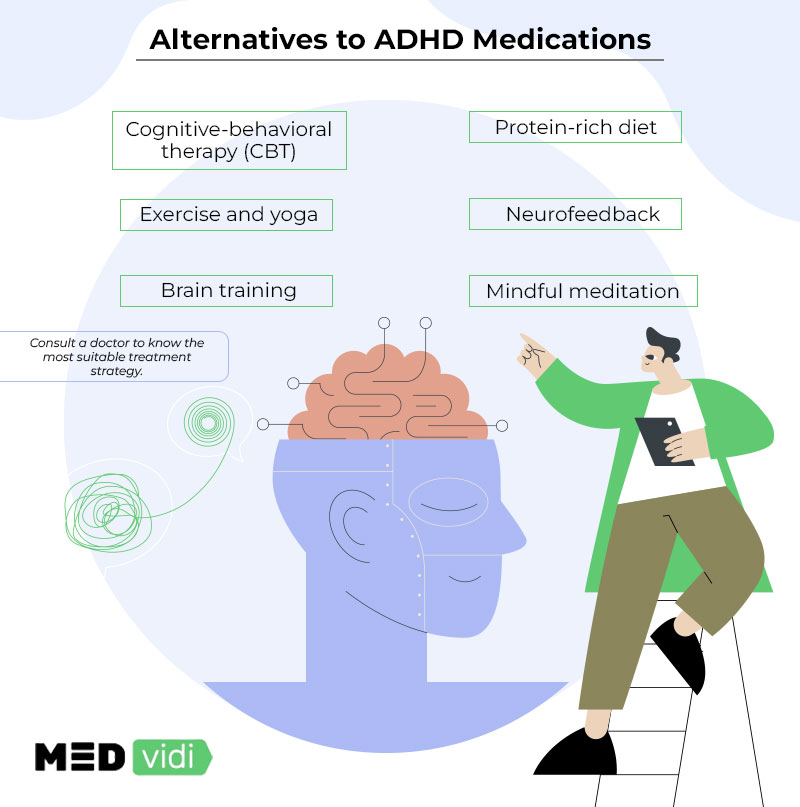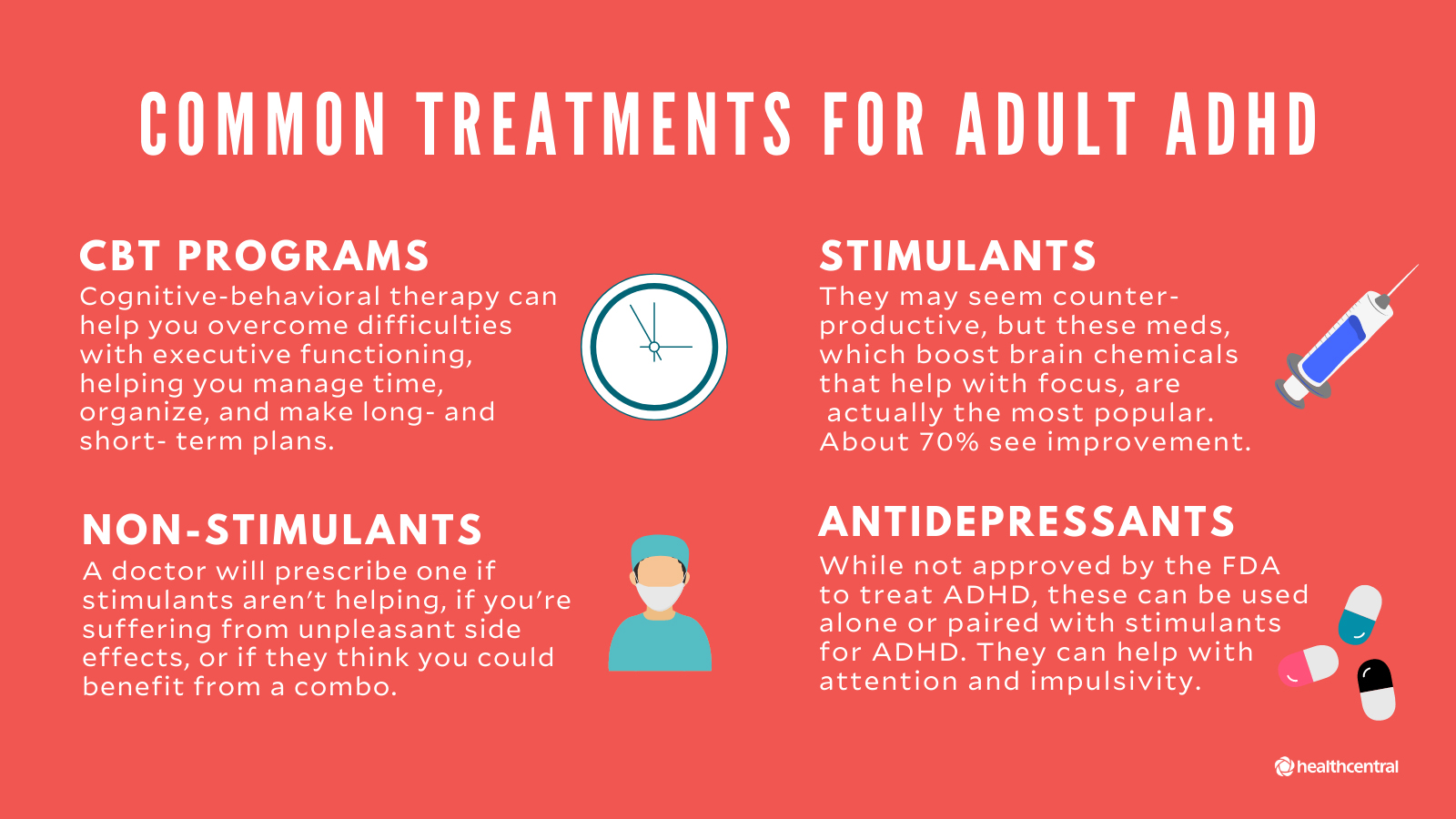Therapist for ADHD Specialists Focusing on Targeted Care
Therapist for ADHD Specialists Focusing on Targeted Care
Blog Article
Your Overview to Locating the Right ADHD Therapy for Long-term Outcomes
Navigating the intricacies of ADHD therapy needs a nuanced understanding of both the disorder and the myriad alternatives offered for effective administration. It is important to recognize that what help one individual might not necessarily produce the same outcomes for another. Therefore, a tailored method-- incorporating specialist advice, medicine, behavior strategies, and lifestyle changes-- becomes critical. Nonetheless, the journey toward recognizing the most ideal therapy plan can be stuffed with obstacles. What are the vital aspects that affect successful end results, and how can individuals guarantee they get on the right path?
Understanding ADHD and Its Impact

In adults, ADHD can result in challenges in workplace environments, affecting productivity, time monitoring, and social connections. Commonly, undiagnosed or incorrectly handled ADHD can contribute to co-occurring mental health concerns, such as stress and anxiety and anxiety, further making complex a person's general well-being.
The social assumption of ADHD can vary, resulting in preconception and misconception, which may hinder people from seeking help. As understanding grows, it is necessary to promote an environment that advertises understanding and assistance for those influenced by ADHD, stressing the requirement for precise diagnosis and tailored strategies to reduce its impact on daily life.
Introduction of Therapy Options
A detailed technique to treating ADHD includes a variety of alternatives customized to the individual's special needs. These alternatives can broadly be categorized into behavioral treatments, psychoeducation, and way of living modifications, alongside medicinal therapies that may be checked out later.
Behavioral interventions, such as cognitive-behavioral treatment (CBT), concentrate on modifying details actions and creating coping strategies to take care of signs properly. Psychoeducation plays a critical role in equipping both people and their families by supplying information about ADHD, its challenges, and efficient methods for assistance.
Lifestyle adjustments can considerably influence ADHD management. Routine physical task, a well balanced diet, and appropriate rest add to general wellness and signs and symptom control. Mindfulness practices and relaxation techniques can likewise improve focus and lower impulsivity.
Assistance groups and household treatment can cultivate a feeling of area and understanding, helping people really feel much less separated in their experiences. Each therapy alternative should be thought about in conjunction with the person's choices and situations, guaranteeing an all natural approach that promotes long-lasting success. Ultimately, the goal is to produce an individualized therapy plan that attends to the particular difficulties connected with ADHD while improving general lifestyle.
Medication: Benefits And Drawbacks
Medication plays a pivotal role in the treatment of ADHD, with various options available that can significantly alleviate signs and symptoms for several individuals. Stimulants, such as methylphenidate and amphetamines, are frequently prescribed and have shown performance in boosting focus, reducing impulsivity, and boosting general habits. These medications function by boosting dopamine and norepinephrine degrees in the mind, which are commonly dysregulated in those with ADHD.
Some individuals may experience side results, including sleeplessness, decreased appetite, or boosted anxiety. Furthermore, not all people respond to stimulant drugs, leading some to explore non-stimulant alternatives, which may have a postponed start of action or different side impacts.
It is crucial for individuals and their households to weigh these pros and disadvantages meticulously. Balancing the benefits of sign administration versus possible adverse effects is crucial for accomplishing ideal therapy end results. Cooperation with doctor can assist Depression Doctor in enlightened decisions, making sure that medicine belongs to a thorough ADHD monitoring strategy.
Behavior Treatment Strategies

One generally employed method is Cognitive Behavior Treatment (CBT), which aids individuals recognize and change unfavorable idea patterns that add to ADHD-related obstacles. Therapist for ADHD. Through CBT, clients learn to set practical goals, handle time successfully, and develop business systems
An additional reliable strategy is Moms and dad Administration Training (PMT), which enlightens moms and dads on how to reinforce positive behaviors and reduce negative ones through consistent technique and communication techniques. This method promotes a helpful home atmosphere that motivates behavioral enhancements.
Social abilities training is likewise important, assisting individuals with ADHD navigate social interactions better. Role-playing and modeling ideal habits can enhance social proficiency and reduce anxiety in social scenarios.
Way Of Living Modifications for Better Administration
Exactly how can lifestyle adjustments substantially enhance the monitoring of ADHD signs? Implementing calculated way of living adjustments can lead to considerable enhancements in focus, organization, and emotional law for individuals with ADHD.
Firstly, establishing an organized day-to-day routine helps in producing predictability, which can reduce sensations of overwhelm. Constant timetables for dishes, research study, and sleep can improve daily functioning.
Incorporating normal exercise is also essential, as exercise has actually been revealed to increase dopamine degrees, improving attention and motivation (Therapist for ADHD). Going for at the very least half an hour of moderate exercise most days can be valuable
Nutrition plays a crucial role. A balanced diet plan abundant in omega-3 fats, whole grains, and healthy protein can sustain cognitive feature. Limiting refined sugars and high levels of caffeine might minimize symptoms, as these can cause energy accidents and irritability.
Conclusion
In conclusion, locating the right ADHD therapy demands a multifaceted approach that takes into consideration specific requirements and preferences. Partnership with healthcare professionals and open communication with support networks are essential parts in navigating the complexities of ADHD monitoring, inevitably leading to long-term results and enhanced quality of life.
Report this page